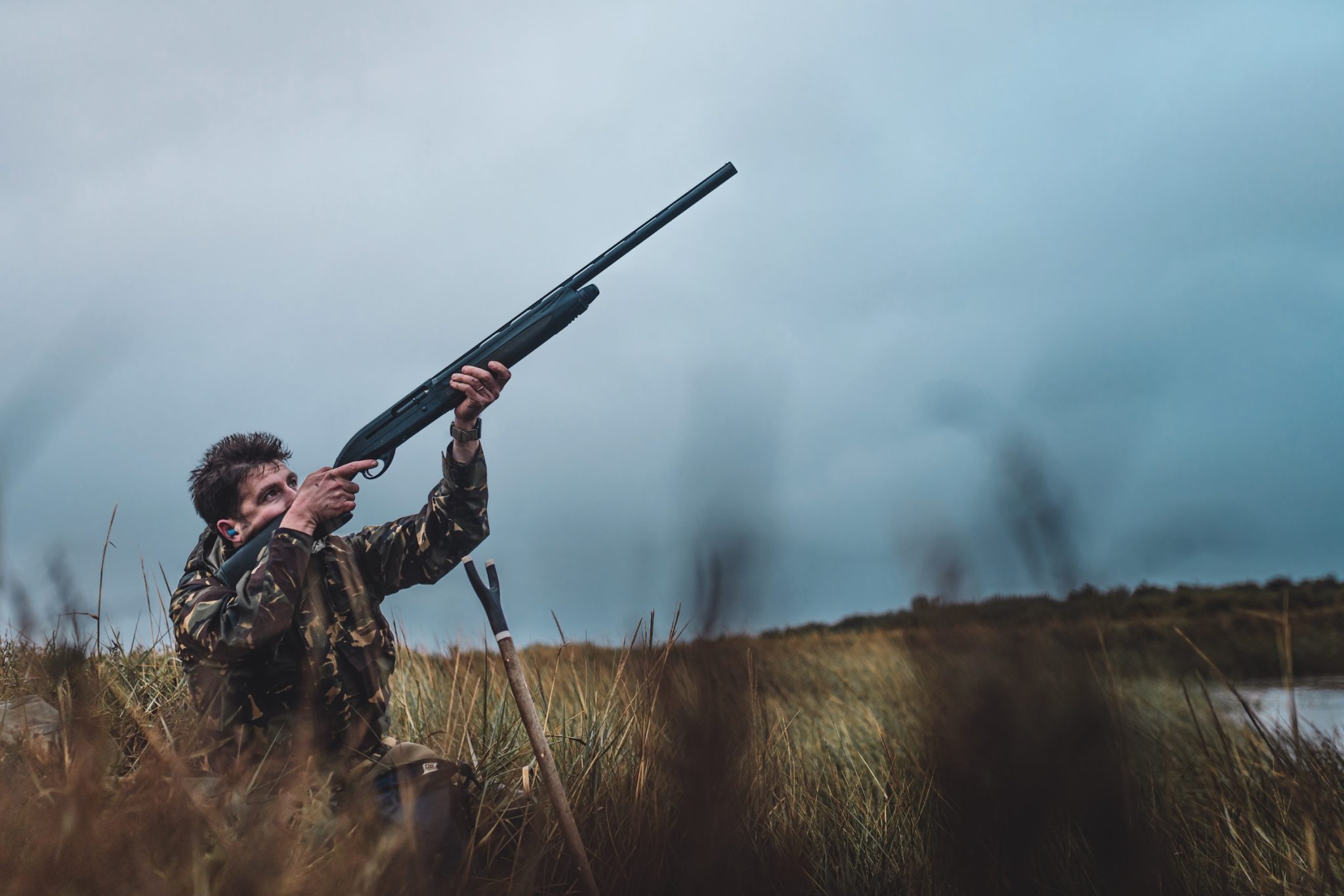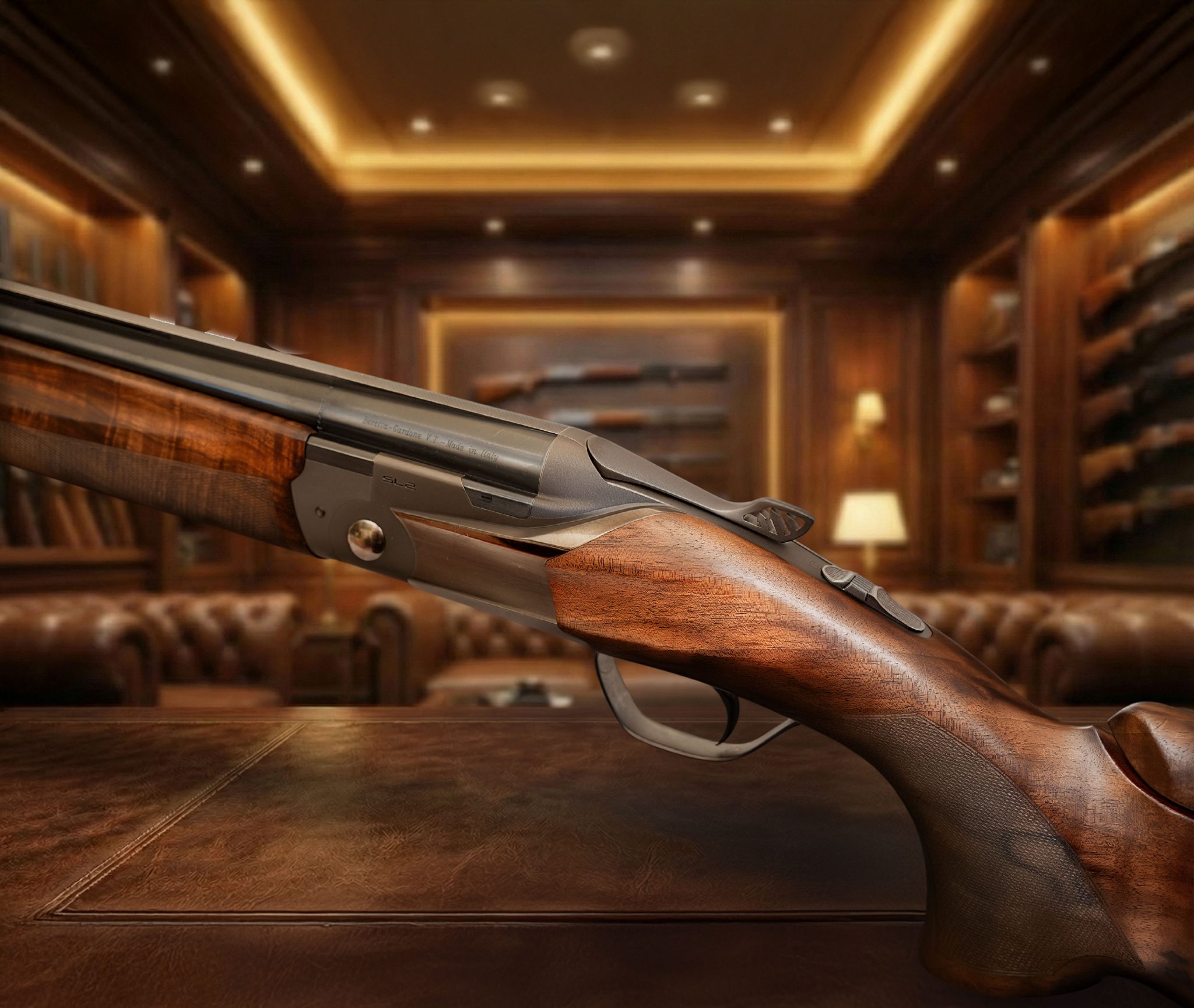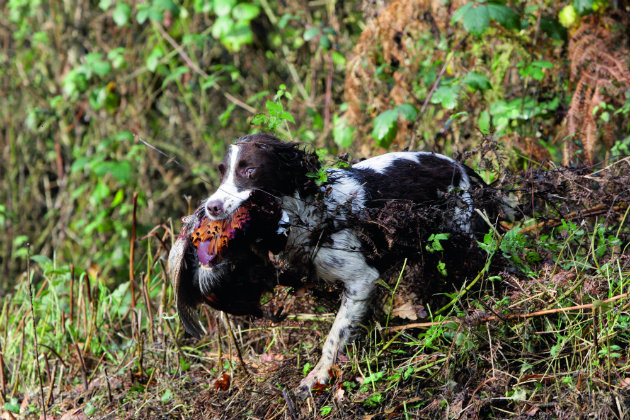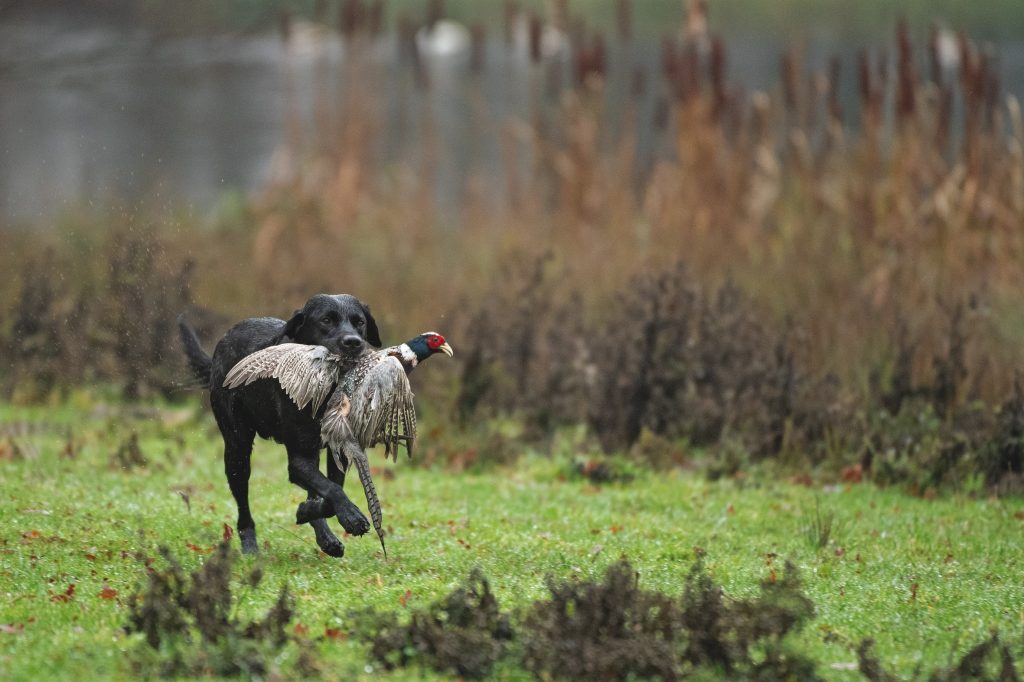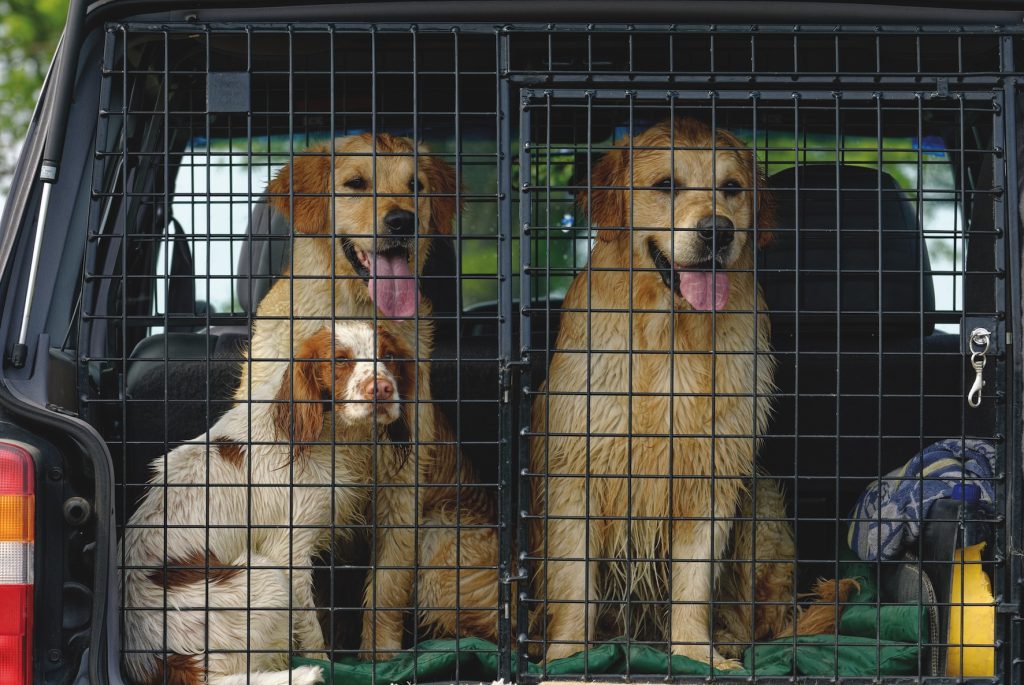A multi-purpose gundog of any breed should be able to deal with anything that is put in front of it. But depending on…
The countdown is on for The British Shooting Show – book tickets online today and save on gate price!
How gundogs scent
A gundog's sense of smell is one of its most valuable tools, but to take full advantage of this capability, it is important to understand how scent works.

The mysteries of the scenting powers of the dog are profound. None of us can fully appreciate to what extent an animal can detect any given scent left by another, or how they can even detect animal matter left buried for many years.
Have humans lost our keen sense of smell?
One thing is abundantly clear, though – the animal’s scenting powers are far more acute than ours. Whether or not our hunter-gatherer ancestors had a better sense of smell than we have is a moot point. I suspect that they did and that, due to modern living, it is a sense that has now become less important to us.
I remember many years ago I was hunting a dog on a high moor when, without warning, the sky became overcast, snow began to fall heavily and within a few minutes developed into a whiteout. Realising that I had lost all sense of direction, with an increasing sense of foreboding and alarm, I put the dog on the lead and, in the forlorn hope that it would understand, I commanded ‘car’. Unerringly she led me back through the storm to safety.
I think that was instinct on the dog’s part. On getting home I realised I had lost my reading glasses. The following autumn I was training a novice dog on the same moor, when he started pottering about at one particular spot. Impatiently I told him to ‘get on’, whereupon he came bounding back to me, carrying the glasses I had lost all those months before. I can only conclude that some vestige of my scent had remained in spite of the winter snow – right through the summer into autumn.
I am convinced that when a dog sniffs at a lamp post before laying its scent, not only is it well aware that another dog has passed that way, but it can learn how much of a threat that dog might be. I have also experienced many times a new dog refusing to enter the kennel vacated by a ‘top dog’ a couple of days before, despite it having been disinfected, yet quite happily going into another kennel.
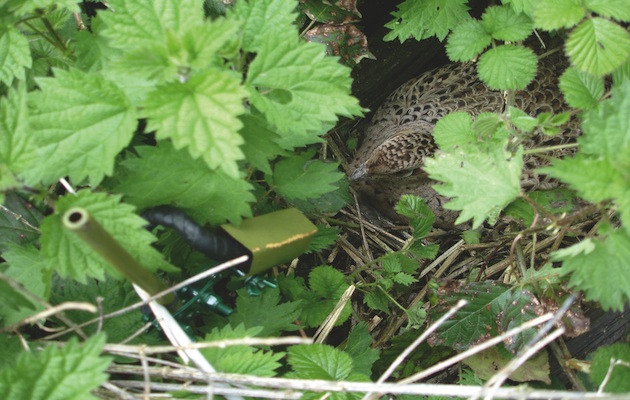
Hen pheasants nest facing the wind
Why hen pheasants face the wind
That can only be scent. Much of a bird’s or animal’s life in the wild depends on scent. Obviously, a hen pheasant does not know why she always sits on her nest facing into the wind. It can only be instinctive, for animals and birds do not have reasoning powers, so she is unaware that by sitting facing into the wind, her feathers will not ruffle and give off telltale signs of scent to a predator.
Similarly, a bird shot dead will most probably fall with its wings closed and therefore give off less scent than one that has been wounded, for the latter’s wings may stay open creating a pillar of scent droplets which will guide the dog more easily to the fall.
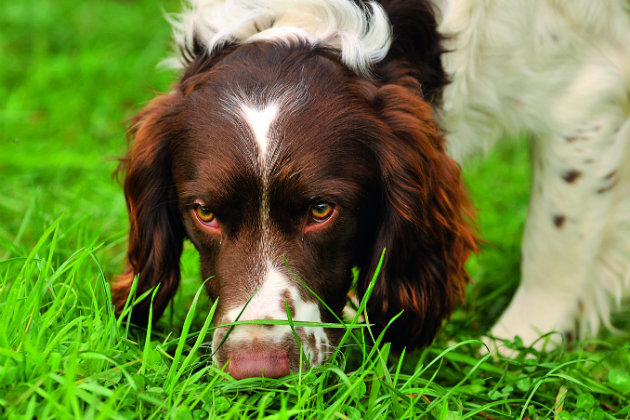
Scent will be altered by heat, moisture and atmospheric conditions
How scent is caused
Scent is caused by minute droplets of moisture, which exude from various scent glands – the most commonly known being adrenalin, a hormone secreted by the adrenal glands. Here, the fight-or-flight that occurs with any burst of activity, from which a sudden explosion of scent is generated into the atmosphere will betray the quarry’s presence.
But this is only a small part of the picture, for scent emanates from many sources on the bird or animal’s body, such as ears, anal glands and feet. Each scent is distinctive to the dog’s highly developed sense of smell and varies between species. An experienced dog handler can quite easily tell, from its body language, whether his dog is working on an air or ground scent, and in many instances even what species is about to be flushed.
To be able to handle a dog properly is to possess a sound understanding of scent, what it is, how it behaves and furthermore to recognise and make due allowance as to whether the prevailing conditions render good or poor scenting conditions.
Air and ground temperature; wind, rain and frost; flourishing or decaying vegetation; different plant types; wet, dry or oily, boggy ground – all these, to a greater or lesser degree, have an effect on scent conditions. Any extreme condition, such as dry hot air, high winds, heavy rain, heavy snow, plants such as wild garlic, and rotting leaf or wood mould, will be detrimental to scenting conditions.
When dogs hunt slowly
Let us imagine you are hunting your dog on a frosty morning before the sun has risen, on ground that would normally be considered good, with none of the aforementioned detrimental effects. Scent will be poor and, if there is a stiff breeze, your dog will have even more difficulty in picking it up. For instance, a rabbit that has sat tight all night ensconced in a tussock of grass will cast little, if any, scent around it. In such conditions a good, experienced dog will hunt much slower and more methodically than usual.
On the same morning, as the sun gets higher, scenting conditions will steadily improve on areas of ground such as the sunlit side of a hollow or a hill, and the dog’s hunting progress will increase accordingly. As the day progresses from a poor scenting morning, by mid-afternoon, before the sun has set, scenting which by then was very good could deteriorate rapidly soon after sunset, while at the same time shaded areas in woodland, especially if it is bare, will remain virtually scentless throughout the day.
A bird or rabbit lying close in to the sheltered side of a wall may render poor scent even on a good scenting day, whereas exposure to the sun and wind on the other side of the wall could afford excellent scent.
As I have said, a bird shot cleanly will generally fall with minimum disturbance to the air currents surrounding it and thereby offer little guidance for the dog sent to retrieve it. A wounded bird is more likely to fall with its wings spread, creating a great deal more disturbance around it and leaving a distinct ‘pillar’ of scent on its descent, making it much easier to detect.
In a stiff breeze I have seen a dog handled out downwind and register that he had winded the fall from 15ft away, take the line to and retrieve the runner. Yet there are times when even its acute scenting capabilities may defeat the dog. For instance, it is not at all unusual to see a dog that had been making good the line to a runner, suddenly be at a loss upon encountering an area of decaying vegetation or oily bog.
Therefore, upon sending his dog to retrieve a bird, the handler must take into consideration the wind, its strength and the direction that it is coming from, and make allowances for it. On many occasions I have seen a wounded bird fall and run, and the whole business of a successful retrieve mucked up by the handler simply sending his dog straight out to where he thought the fall was and not allowing for scent-drift on the wind, to the extent that what should have been a successful and swift collection of a runner was left for the keeper to pick-up.
Water does not defy scent
It is a well-known fallacy that water defies scent. It is true that swift-flowing water will quickly wash away and therefore dissipate the droplets containing scent. Such is not the case in slow or still water. Indeed, the latter will contain and hold scent for some time. At a field trial, I witnessed a wily old cock which after a short run ensconced himself in shallow water with only his beak showing, undoubtedly instinctively feeling safe. A few handlers watching from a bridge thought the bird unpickable, yet after taking the line to the water’s edge and feathering for a few minutes, the dog quickly entered the water and unerringly homed in and picked the bird out of the stream.
As scent is carried on moisture droplets, any extreme conditions, whether they be a prolonged spell of hot weather, severe frost, high winds or a combination of these, will render conditions poor.
Therefore, a satisfactory maxim to adopt could be that moderation in all will present ideal scent for the dog to work on.The good dog handler knows that in the final analysis he must give credit to the awesome scenting powers of his dog if he is to reap the full benefit of his dog’s capabilities.
In other words, trust the dog.
Related Articles
Get the latest news delivered direct to your door
Subscribe to Shooting Times & Country
Discover the ultimate companion for field sports enthusiasts with Shooting Times & Country Magazine, the UK’s leading weekly publication that has been at the forefront of shooting culture since 1882. Subscribers gain access to expert tips, comprehensive gear reviews, seasonal advice and a vibrant community of like-minded shooters.
Save on shop price when you subscribe with weekly issues featuring in-depth articles on gundog training, exclusive member offers and access to the digital back issue library. A Shooting Times & Country subscription is more than a magazine, don’t just read about the countryside; immerse yourself in its most authoritative and engaging publication.



